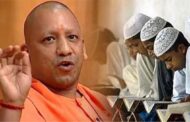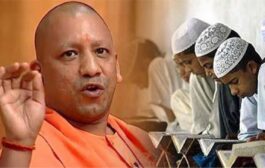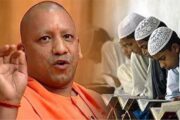It was said of the BJP in 2018 that the party is failing to set the news agenda and playing catch-up politics to a resurgent Congress. Pundits and commentators have long been pointing out that whereas the BJP had been a step or two ahead of the Congress in 2014 when Narendra Modi rose to power with an unprecedented mandate, that gap seems to have vaporised four years down the line. The Congress has vastly upped its social media game, its data analysers and scriptwriters are giving new president Rahul Gandhi a combative edge and its win in three Hindi heartland states defeating the BJP in a straight fight has boosted the confidence of Opposition. “Modi needs a new story in 2019,” wrote most analysts.
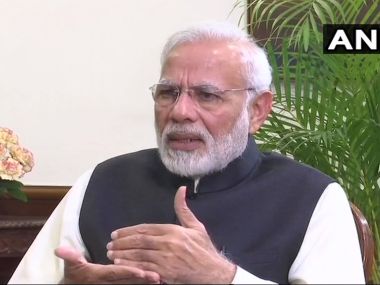
But Modi is nothing if not a man for the big occasion. It’s too early to tell whether the BJP will snatch back the primacy in political discourse in 2019 but the prime minister has taken the game by the scruff of its neck on the first day of the New Year. There are several talking points and news agendas in the lengthy interview to news agency ANI on Tuesday, but two distinct strands run through the entire length of the 95-minute discussion. It is evident that these two themes may form the fulcrum of BJP’s campaign strategy for the Lok Sabha elections. The first is corruption, the second is trust.
Setting the agenda for 2019, the prime minister went on the front foot on corruption — an issue that the Opposition (mainly the Congress) has sought to weaponise against Modi. Several times during the interview Modi picked up the topic, adopted an offensive posture and sought to turn Opposition’s weapon into its vulnerability. This is not a surprise. Corruption had been Modi’s favourite plank in 2014 when he promised a clean government, free of the taints that had smeared UPA-II.
The flight of economic offenders, the NDA government’s inability to bring to book past scamsters and Congress’s high-pitch campaign on Rafale had somewhat blunted Modi’s edge on corruption. Towards the end of 2018, however, a series of developments including Christian Michel’s extradition, Supreme Court verdict on Rafale and Vijay Mallya’s setbacks in London have handed the initiative back to the BJP and the prime minister sought to drive home the advantage.
On economic offenders flying the coop under his watch, Modi flipped the question and came back at the Opposition, stressing on the fact that Nirav Modi, Mehul Choksi or Vijay Mallya’s flight serves to only prove the contention that NDA government made life difficult for the ‘scamsters’ to survive.
“Why did they need to flee after all. Had there been governments like earlier, same dostana would have continued, lootna hai, looto; khana hai, khate chalo. They would have no need to flee. They had to flee because they would have to adhere to the laws here.”
Modi tried to delegitimise Rahul Gandhi’s campaign as an “anti-corruption” crusader by highlighting the fact that he is out on bail in a case involving financial irregularities and referred to AgustaWestland middleman Michel’s alleged links with the ‘Family’. The attempt clearly was to show that Rahul, who is fighting charges of financial wrongdoings in court, lacks the moral right to talk about corruption. Modi was also quick to point out, however, that these cases are being pursued not out of political vendetta but as a due course of law.
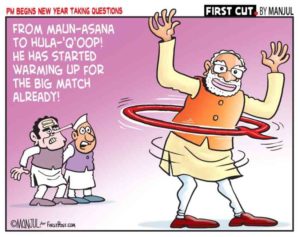
“Those who are on bail, can do it…. but it is a fact that those considered first family, who ran the country for four generations, are out on bail, that too for financial irregularities. It is a big thing.” The prime minister said during the interview.
The veiled jibe at “a set of people, who are at their service, are trying to suppress such information and push other narratives” was meant to highlight the fact that media narratives are driven by political bias. We find a reference to this theme — the ostensible link between Congress’s ‘first family’ and corruption — again while Modi was asked a question on the raids carried out by probe agencies and whether these were “political motivated”.
“If a Congress worker turns up to be Christian Michel’s lawyer, then it is a cause for worry. The countrymen should be proud that Razdaar has come, now there will be proper inquiry under legal scrutiny and the truth will come out. Instead of that, you are sending lawyers from your party to support him — Michel,” Modi said.
This was segued with the next question posed to him on allegations of corruption on Rafale fighter jet deal, and Modi pointed out that instead of leveling evidence-free allegations, Congress should answer “why controversies have been created over defence deals since Independence and our forces weakened. Who is doing it? What is the reason? Also, what is the need for middlemen in the defence deals? Can’t defence deal not be done without middlemen?” The repeated reference to Michel is a bit of political gamesmanship with the British national, who is in ED custody, apparently naming a ‘Mrs Gandhi’ and “son of the Italian lady” during interrogation.
The second issue that kept cropping up during the interview was the ‘bond of trust’ that Modi claimed to enjoy with common public. The idea that emerges is that Modi is the repository of public trust while others are busy with numbers game for political survival. When a debate is set on these terms, it becomes easier for the BJP to run a ‘Modi vs Rest’ campaign where the prime minister represents the aspirations of young people and the faith of electorate, and the Opposition — working to scuttle Modi’s plans — becomes the ‘enemy’ of the people.
For instance, on ‘Modi wave’, the prime minister said for him “wave (is) only about people’s expectations and aspirations, (and) only about trust that who will fulfil our aspirations and expectations”, or where he says “in 2019, if there is one party which the country trusts and is connected with the people, it is the BJP.” What was Modi was trying to do here was to trap the Opposition into a binary and frame the 2019 battle not just as ‘Modi vs Rest’ but ‘People vs Rest’.
This comes out in his statement where he says: “Indian public will decide the course of elections. The public will decide the agenda. Who is for the aspirations of the people, who is against the aspirations of the people. This is going to the yardstick for the elections.”
As has been pointed out, there are several other talking points in the interview that may keep the conversation going possibly for weeks, but these two themes present the pivot of BJP’s 2019 election campaign. Modi evokes trust and stands against the corrupt — the new BJP storyline is clear.
source: Firstpost.com



